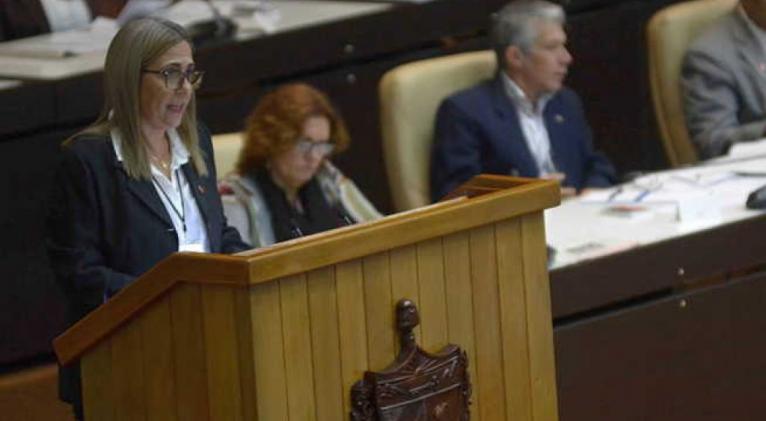Cuban Lawmakers Approve 2020 Budget Law
especiales

The law is part of the Cuban response to the U.S. blockade, in order to guarantee basic services and continuity in the rise of salaries.
Lawmakers approved unanimously the budget law for 2020 which will guarantee basic services for the population, including health, education and social security, during the Fourth Ordinary Session of the Ninth Legislature of the National Assembly of People's Power (Cuban Parliament, ANPP), conducted by its President, Esteban Lazo.
RELATED:
Cuba Denounces New OAS Attack Against Medical Collaboration
The law also plans state investments in different sectors of the economy, according to the policies implemented by the Minister of Finances Meisi Bolaños.
The Law on the Organization and Operation of the National Assembly of People's Power and the State Council, which since October is also headed by the president of the legislature (in line with the new Constitution), was also approved, as well as the Law on the Organization and Operation of Municipal Assemblies of People's Power and People's Councils.
Both regulations are requirements of the new Constitution proclaimed in April, whereby in the current legislature almost 40 bills must be presented to Parliament as part of the process towards greater national institutionalization.
In July, deputies approved the Electoral, National Symbols, and Fisheries laws.
By constitutional mandate, the ANPP will designate the country's prime minister tomorrow, a returning post which was occupied by the historic leader of the Cuban Revolution, Fidel Castro, from February 1959 until December 1976, the year of the constitutional reform.
The head of the government will be nominated by President Miguel Díaz-Canel, as will the Cabinet. All those appointed will require the majority vote of parliamentarians.
The country's economy minister said on Friday that he was forecasting a 1 percent growth in 2020 despite the U.S. sanctions.
"Amid the limitations and thanks to the efforts of the people, it is estimated that the Cuban economy did not decrease in 2019," Alejandro Gil told a session of the Cuban National Assembly broadcast on television.
The administration of U.S. President Donald Trump has increased the blockade, sanctioning more than 200 Cuban companies, as well as Venezuelan and other foreign ships and companies involved in the Venezuela-Cuba oil trade which the Caribbean island depends on.
"We have been facing additional restrictions with the availability of fuel, affecting, among others, public transport, forcing us to temporarily paralyze some investments and decrease the pace in others and impacting agriculture, food production and distribution and other lines of high economic and social importance," Gil said.
Gil said priority would continue to be given to increasing exports, reducing imports, attracting investment and savings on fuel and other resources.













Add new comment